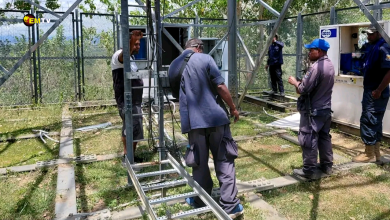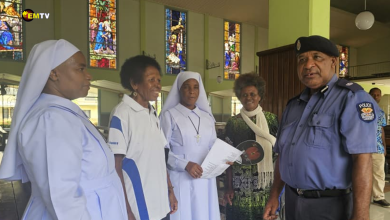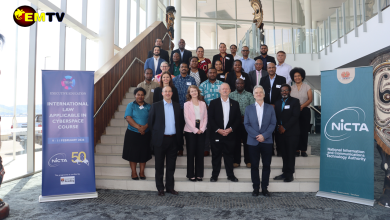FAO: Agro-Meteorological Advisories Key to Farmers’ Livelihoods
Agriculture is heavily reliant on weather. With vagaries of climate change, we notice that weather patterns are undergoing drastic changes. Growing uncertainties of weather and climate pose a major threat to food security of Papua New Guinea and the need to provide actionable advisories to agriculture-reliant communities to manage agricultural risk is key to sustaining livelihoods.
Rural communities have relied on traditionally knowledge to plan their cropping cycle, as well as deciding on the time of harvesting. However, we see that this is not feasible or efficient in the current milieu. This is where agromet advisories are of great importance.
The Food and Agriculture Organization of the United Nations in partnership with the Department of Agriculture and Livestock (DAL), the National Weather Services (NWS) and the Regional Integrated Multi-hazard Early Warning System (RIMES) are conducting a Training on Agro-Meteorological Advisory Services for Papua New Guinea at NWS from 22-24 May 2018.
This training is attended by over 20 participants from various organizations – DAL, NWS, Coffee Industry Corporation (CIC), Fresh Produce Development Agency (FPDA), Cocoa Board, Oil Palm Industry Corporation (OPIC), Oil Palm Research Association (OPRA), National Agricultural Research Institute (NARI), NAQIA, Kokonas Indastri Koporesen, National Forest Authority, National Fisheries Authority, PDAL Jiwaka, and PDAL East Sepik.
Agro-meteorological service and advisories are an innovative step to contribute to weather information based crop/livestock management strategies and operations dedicated to enhancing crop production by providing real time crop and location specific agromet services with outreach to rural communities.
FAO is keen on delivering this critical capacity development need for PNG through this partnership. FAO assistance in the country focuses on agriculture and livestock, fisheries, forestry, conservation and rural development; as shaped by the 2018-22 Country Programme Framework.
This training is strategic in line with one of FAO’s priorities – strengthened resilience for food security and nutrition – through the use of relevant tools and protocols, and enhancing actionable information readily available to the rural farmers. The learning opportunity will be crucial for PNG to better equip institutions and the Government in their preparedness for prevailing natural disasters resulting from the country’s global positioning.
The training workshop is part of the PNG E-agriculture project, a collaboration between FAO, International Telecommunication Union, NICTA, DAL and other stakeholders in the agriculture, natural resource and ICT sectors. Through this partnership, FAO is supporting the Government of PNG to integrate the use of ICT in its agricultural development plans and strategies. In this context, FAO has supported the Government in preparing its National E-Agriculture Strategy, and is planning to pilot the priority ICT solutions identified under the Strategy in selected pilot provinces.
Agromet information and alert systems are among the prioritized e-solutions identified for PNG under the PNG E-agriculture Strategy.
The other major output is the development of the DAL Website, which will be launched soon. The two pilot provinces are represented at this training program; from East Sepik and Jiwaka.
Source: Food and Agriculture Organization






